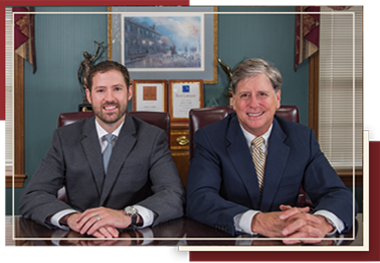Do you think Virginia roadways are dangerous? A national safety organization agrees with you. Virginia ranks 38th in the nation in overall roadway safety, according to “The State of Safety,” a report published in June by the National Safety Council.
While Virginia came in 38th for road safety, it also lags behind our neighboring states of West Virginia (which ranked sixth) and Maryland (which ranked seventh). Our neighbor to the south, North Carolina, ranked 20th.
Nationwide, the current road-safety situation is bleak. The reports says that “after dropping steadily for decades, the nation is in the midst of the deadliest spike in road fatalities in 50 years.” There were an estimated 40,200 road fatalities in 2016, the report says.
States play a vital role in making the roads safe, the report says. This includes laws, enforcement of laws and driver education.
Let’s take a look at what Virginia’s ranking means, and see where we can improve as a state.
Why such a low ranking?
In the report, the states are graded on policy and legislation in 24 categories across eight safety issues: alcohol impaired driving, child passenger safety, distracted driving, older drivers, seat belt use, speeding, teen drivers and vulnerable road users.
The report broke down the evaluations into three categories: on track, developing and off track.
Virginia was judged to be:
- Alcohol impaired driving: developing
- Child passengers: off track
- Distracted driving: developing
- Older drivers: on track
- Seat belts: off track
- Speeding: developing
- Teen drivers: off track
- Vulnerable road users: off track
The report defines vulnerable road users are individuals who are less protected. This includes motorcyclists, bicyclists and pedestrians.
Fatigue: an emerging issue
The report highlights fatigued driving as an emerging safety issue for our nation’s roadways. Driving without adequate sleep is comparable to impaired driving – risks increase and motorists’ reaction times decrease. So far only two states (New Jersey and Arizona) have laws that apply to fatigued driving.
The National Transportation Safety Board included drowsy driving on its list of “most wanted transportation safety improvements.”
What can be done?
Clearly, Virginia has a lot of work to do to make its roads safer for motorists and pedestrians.
The report cites changes in New York City as a “promising practice.” In 2014, pedestrian deaths there fell to the lowest level in a century. What changed in New York? Among other things: the city’s default speed limit was lowered from 30 to 25 miles per hour; enforcement of speeding laws increased; parking lanes were widened to keep delivery vehicles out of traffic while double-parked.


